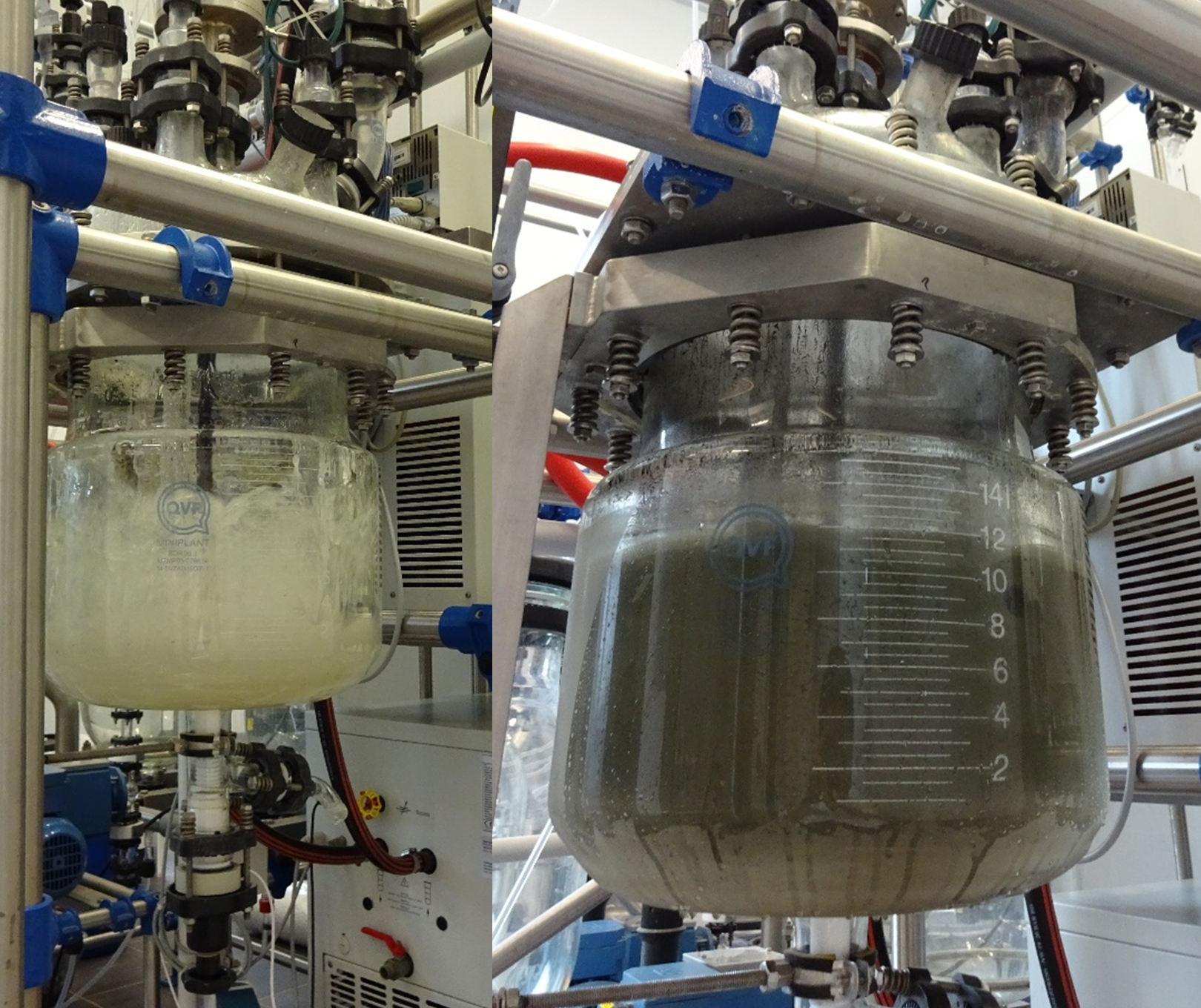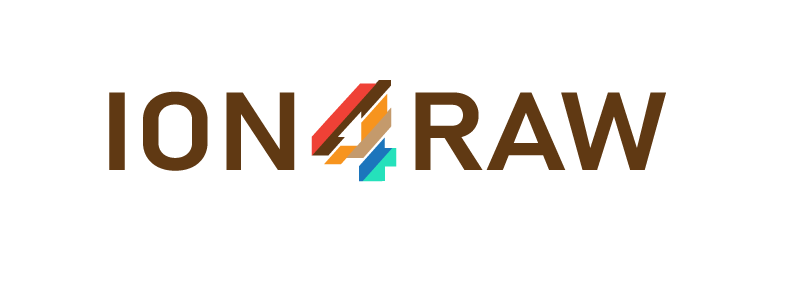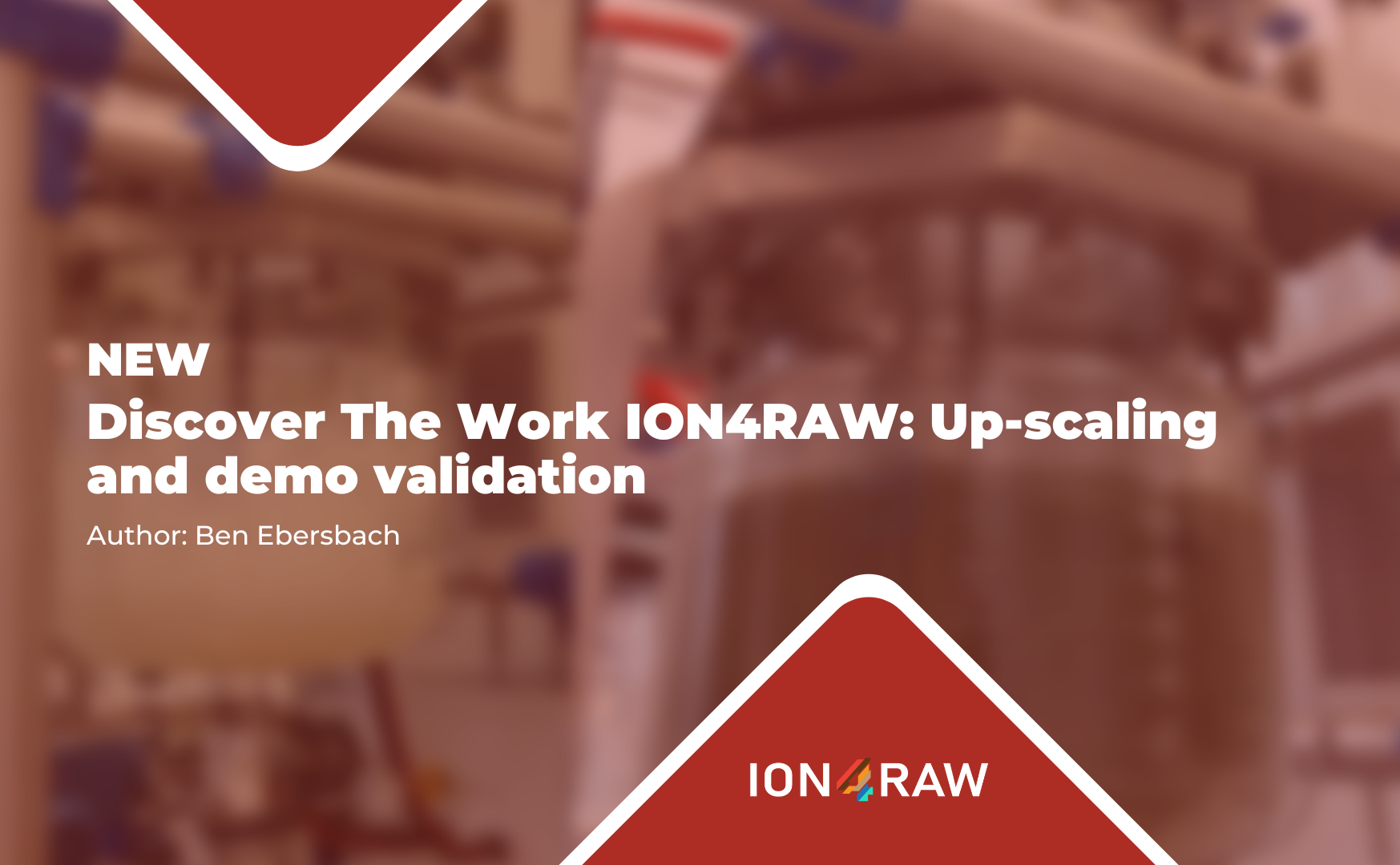The ION4RAW project funded by the European Union is investigating innovative recovery processes of metals from different kinds of minerals. The metals of interest are so called “critical raw materials” (CRM) which are globally uneven distributed and mostly imported into the EU. To exploit deposits located within the EU and recover those metals form already processed minerals the ION4RAW project uses deep eutectic solvents (DES) to leach the metals out of ores and minerals. DES are new and environmentally friendly leaching agents made up of organic compounds in contrast to classic water-based leaching agents like acids and bases.
During work package 6 of the ION4RAW project partners from Germany, Italy, Norway and Spain teamed up to transfer the ION4RAW process established in the lab scale to be performed in a pilot plant build, operated and validated at tecnalia research & innovation facilities in Spain. TU Bergakademie Freiberg, Germany, investigated the up-scaling of the process to the medium scale prior to setting up the pilot plant which will be able to process up to 100 L. Working in a jacketed glass reactor of 15 L, displayed in figure 1, suited for that kind of leaching experiments the researchers were able validate the parameters for the process and maintain a high recovery rate of the metals.

Figure 1: Jacketed glass reactor with DES left and during the metal leaching right.
SINTEF in Norway analysed the deposition of the leached metals in solution by applying electrical current for the recovery of pure metals. The Italian partners of RINA Consulting Centro Sviluppo Materiali will evaluate the metals produced during the process in regard to purity and use in commercial products. In the end of the ION4RAW process and products will be validated and evaluated by IDENER in Spain.
Researchers found out that the ION4RAW process can be carried out in a higher processing rate suitable to be performed in early industry applications. Metals of interest like antimony, bismuth or tellurium all of which are important for high-technology products are recovered in high rates from the starting material.
The greatest challenge faced during the up-scaling process was to dissipate the heat produced during leaching. This challenge arises from the different ratios in which volume and surface area change during scale-up. The processed amount of material is in contact with a much lower surface area in large equipment in respect to small lab scale experiments. Therefore, the heat produced can´t be dissipated in such good ways which makes utilisation of sophisticated cooling equipment and agents essential for successful metal recovery.
In the future the ION4RAW process will be applied to other minerals and secondary raw materials like slags from metal production to increase possible application fields of this innovative process. The process should be further optimised and adapted that a broad variety of metals can be recovered and used for production which are currently not recovered for different kinds of mineral deposits and are lost to tailings or landfill. In this way the ION4RAW project will contribute to more environmentally friendly and holistic recovery of metals that are of high importance for industries, consumers and the society in general alike.
In order to develop and evaluate the ION4RAW process on samples from different kind of resources typology and respective mineralogy, five ore deposits were selected and sampled with help of the mining operators: Cobre Las Cruces and El Valle Boinás ore deposits in Spain, Cononish gold mine which is the only active gold mine in Scotland, Cerro Lindo and El Porvenir ore deposits in Peru. Between 300 kg and 7 tons of each bulk ore, totalizing 22.7 tons of material, were sampled during the first year of the project and distributed to ION4RAW partners. Sub-sampling and pre-treatment of the samples for the lab analyses are described in a public report[3].
Author: Ben Ebersbach


